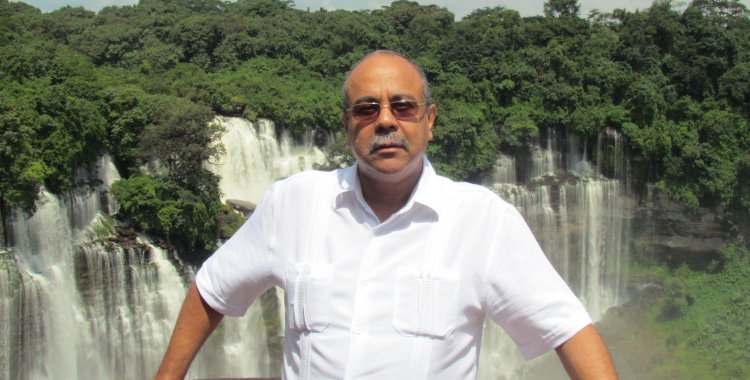"Countries do things like this. They take actions to contest these actions of accommodation. Countries do things like this", he stated, highlighting that this is a process of creating a bourgeoisie, "which, deep down, is identical to the process of formation of bourgeoisies in all countries".
"We Angolans sometimes think that we are special. But we are not that special. These are historical processes that, depending on the conditions, the circumstances, are very similar to any other country, contemporary or not", he added.
João Melo presents his most recent work in Lisbon on Thursday: "The Accumulator", the eighth book of short stories - or stories, as he sometimes refers to them - in which he questions Angolan society and politics.
And asked whether Angola is still paying the bill for the leaden years, in which colonial domination was followed by civil war and external aggression, João Melo has no doubts.
"This is inevitable. Obviously yes. It is obvious that there are consequences that are inherited from colonization, consequences of the civil war, consequences of the cold war of which Angola was one of the orphan countries, so to speak, as the UN representative herself wrote in Angola, in those years, [British diplomat] Margaret Anstee [1992-1993]. But it is also obvious that this alone is not enough to explain the State and the current situation of the country", he considered.
"There is never a simple explanation for more complex problems. It is often said that if a complex problem has a simple explanation, then it is not complex and Angola is a very complex situation", she stressed.
A journalist by training, João Melo was a deputy of the Popular Movement for the Liberation of Angola (MPLA), a party in power since the country's independence in 1975, and with the arrival of João Lourenço as President, he was appointed Minister of Social Communication in 2017, being replaced in the position two years later.
The reaction to the dismissal was then left on social media: "I'm no longer a minister. I'm going to be what I actually am: journalist, writer and teacher. A hug to everyone."
Asked about the evaluation of the promises that João Lourenço made and which guaranteed victory for a first presidential term (2017-2022), the former minister declined to comment.
"If you don't mind, and as this is an eminently political issue, at the moment my position is - I have always been a person of political intervention - my position at the moment is to make political interventions first to the Angolan press. I prefer, on the moment when I understand, position myself within my country", he replied.
When he was appointed Minister of Social Communication, João Melo promised to liberalize the sector, authorize more local radio stations and promote the end of censorship in the different state press organs.
However, he was replaced in the position and the panorama of Angolan media changed radically. From television to the written press and radio, the most important private bodies became part of the state sector.
Asked to comment on whether there is a danger that in Angola there will be a single, unquestionable truth, João Melo does not respond directly and prefers to focus on the issue of concentration of titles, justifying that it is a "universal trend".
"The press in general goes through this risk all over the world. Not only in countries where the State is the main holder of the media, but also in those where the private sector holds most of the titles. You know well that the The trend towards concentration of ownership in the press is evident today, it is undeniable, even in the oldest, most consolidated democracies and where capitalism is most developed", he said.
"Therefore, it is a complex issue, but it is not limited to this dichotomy between the State and private initiative", he added.
Regarding press freedom in Angola, the target of criticism and negative evaluation by non-governmental organizations, as well as the issue of civil liberties, João Melo also refused to comment.
"As you know, I was Minister of Communication in the Government of the current Angolan President for two years, and I understand that at this moment it is not up to me, yet, to comment on the situation in an area for which I was responsible. I think that the government wants to exercise, whether citizens, will be able to do it with more propriety than me", he defended.







